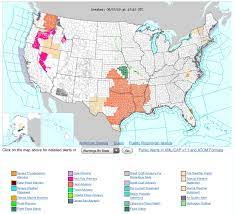Breathing Clean: Understanding Air Quality Alerts and Tackling Pollution
In an era marked by rapid urbanization and industrialization, the quality of the air we breathe has become a matter of paramount concern. As pollution levels soar, endangering both our health and the environment, the importance of air quality alerts cannot be overstated. These vital notifications serve as a clarion call, urging us to take action and protect ourselves from the detrimental effects of pollution. Join us as we delve into the significance of air quality alerts and explore the steps we can take to combat this pervasive problem.
Pollution, a byproduct of human activities ranging from transportation to industrial emissions, poses a grave threat to our well-being. The particles and harmful gases released into the atmosphere not only compromise our respiratory health but also contribute to climate change, exacerbating the global environmental crisis. It is in this context that air quality alerts play a pivotal role, serving as an early warning system that empowers individuals and communities to make informed decisions and safeguard their health.
One of the key benefits of air quality alerts lies in their ability to raise public awareness. By disseminating real-time information about pollution levels, these alerts shed light on the severity of the situation and the potential risks associated with exposure. Armed with this knowledge, individuals can take proactive measures to mitigate their exposure to polluted air, such as avoiding outdoor activities during peak pollution hours or using masks and air purifiers to filter contaminants.
Furthermore, air quality alerts foster a culture of responsibility and collective action. They inspire communities to come together and address the root causes of pollution through advocacy, policy initiatives, and sustainable practices. By raising awareness about the detrimental impact of pollution, these alerts motivate individuals, businesses, and policymakers to strive for cleaner, greener alternatives and adopt practices that minimize their carbon footprint.
Scientific research and data analysis are integral to the effectiveness of air quality alerts. Advanced monitoring systems equipped with cutting-edge sensors collect vast amounts of data, enabling experts to evaluate pollution levels with precision. This invaluable information helps authorities pinpoint pollution hotspots, identify emission sources, and devise targeted strategies to combat pollution effectively. By leveraging technology and scientific research, air quality alerts become a powerful tool in our fight against pollution.
Prevention is undeniably the best approach when it comes to addressing air pollution. While air quality alerts provide timely warnings, it is crucial to proactively implement measures that reduce pollution and protect our health. This includes advocating for cleaner energy sources, promoting sustainable transportation alternatives, supporting green initiatives, and implementing stringent regulations to curb emissions. By focusing on prevention, we can create a cleaner, healthier future for ourselves and future generations.
In conclusion, air quality alerts serve as a vital lifeline in our battle against pollution. They raise public awareness, mobilize communities, and empower individuals to take action to safeguard their health and the environment. By embracing the information provided by these alerts and working collectively to address pollution at its source, we can pave the way towards a cleaner, more sustainable future. Let us heed the call, breathe clean, and strive for a world where pollution is but a distant memory.
 Reviewed by VESTIGE NEWS
on
June 06, 2023
Rating:
Reviewed by VESTIGE NEWS
on
June 06, 2023
Rating:






No comments: